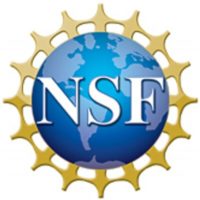
CALL FOR NOMINATIONS: NSF Assistant Director for Computer and Information Science and Engineering
The National Science Foundation is initiating a national search for the Assistant Director for Computer and Information Science and Engineering (CISE).

The National Science Foundation is initiating a national search for the Assistant Director for Computer and Information Science and Engineering (CISE).
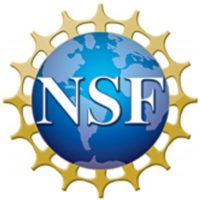
The goal of this workshop is to introduce junior CAREER-eligible faculty to the NSF CAREER program and help them to prepare their CAREER proposals to target CISE programs.

New solicitation opportunity in National Research Traineeships.

The NSF Directorate for Computer & Information Science & Engineering (CISE) has just announced a new program, NSF 19-507, NSF Quantum Computing & Information Science Faculty Fellows (QCIS-FF). This program aims to grow academic research capacity in the computing and information science fields to support advances in quantum computing and/or communication over the long term.

New policy requires awardee institutions to report sexual harassment findings.

In April, NSF requested input from the research community on a policy change to eliminate/reduce deadlines for core programs in the CISE Directorate, and we passed along your feedback. This month, NSF announced a change to remove deadlines for all proposals to the Secure and Trustworthy Cyberspace (SaTC) program.

NSF CISE/IIS has several open program director positions. We encourage you consider serving in this role and sharing the opportunity with your colleagues.
The fourth (and last NSF-funded) New Computing Faculty Workshops will be held August 5-10, 2018 in San Diego. The goal of the workshops is to help new computing faculty to be better and more efficient teachers. By learning a little about teaching, we will help new faculty (a) make their teaching more efficient and effective and (b) make their teaching more enjoyable. We want students to learn more and teachers to have fun teaching them.
Our friends at the National Science Foundation (NSF) have asked for research community input on a proposed policy change to eliminate/reduce deadlines for core programs in the CISE Directorate. Given the increased pressures on securing federal funding and, in some cases, reduced capacity for grant management at computing research institutions, do you think the Computer & Information Science & Engineering (CISE) Directorate should follow the lead of the BIO and GEO directorates and consider eliminating or reducing deadlines for proposal submissions? What positive or negative impact could such a shift have on our community?

The 2018 NSF Workshop for Aspiring Principal Investigators (PIs) in Computer Systems Research (CSR) will help aspiring PIs gain a better understanding of the CSR program and prepare them for developing competitive CSR proposals in the future.

Please nominate colleagues and peers who have extraordinarily advanced the scientific enterprise for this prestigious honor. Nominations and three letters of support must be submitted to NSF by April 16, 2018.
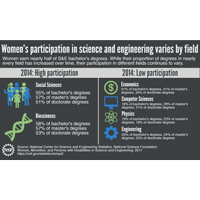
Yesterday, the National Center for Science and Engineering Statistics (NCSES) announced the release of the 2017 Women, Minorities, and Persons with Disabilities in Science and Engineering (WMPD) report, the federal government’s most comprehensive look at the participation of these three demographic groups in science and engineering education and employment.
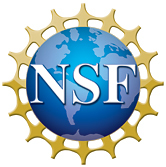
The NSF Directorate for Computer & Information Science & Engineering (CISE) will host a one-day workshop on CAREER Proposal Writing on March 20, 2017. This workshop will be held at the Hilton Arlington, near the National Science Foundation. The goal of this workshop is to introduce junior CAREER-eligible faculty to the NSF CAREER program and help them to prepare their CAREER proposals to target CISE programs. Attendees will have the opportunity to improve their skills in proposal writing, as well as to interact with NSF program directors from different CISE divisions (ACI, CCF, CNS, and IIS) and recent NSF CAREER awardees.
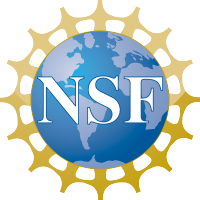
The NSF-wide Graduate Research Fellowship Program recognizes and supports outstanding graduate students in NSF-supported science, technology, engineering, and mathematics disciplines who are pursuing research-based master’s and doctoral degrees at accredited United States institutions.

The NSF Directorate for Computer & Information Science & Engineering (CISE) will host a one-day workshop on CAREER Proposal Writing on April 4, 2016. This workshop will be held at the Westin Arlington. The goal of this workshop is to introduce junior CAREER-eligible faculty to the NSF CAREER program and help them to prepare their CAREER proposals to target CISE programs.
President Obama used his weekly radio address today to announce a new Computer Science Education initiative that would allow states to take the lead in increasing access to CS in K-12 classrooms. The initiative, which will be included in the President’s FY 2017 Budget Request to Congress on February 9th, will designate $4 billion for states available over 3 years, and $100 million directly for districts, to increase access to K-12 computer science education “by training teachers, expanding access to high-quality instructional materials, and building effective regional partnerships.” He will also direct NSF to spend more than $120 million over the next five years to support and train CS teachers.
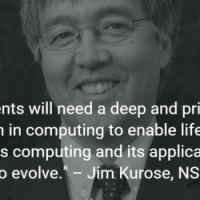
Check out this great article on booming enrollments in computer science by Jim Kurose, current Assistant Director for NSF CISE and former CRA Board Member: In many colleges and universities across the country, computer science classes are bursting at the seams! According to the Computing Research Association (CRA)’s Taulbee Survey, the number of newly declared computer science […]
The National Science Foundation (NSF) is now accepting nominations for the 2016 Alan T. Waterman award, the NSF’s highest honor. This annual award recognizes an outstanding young researcher in any field of science or engineering supported by the National Science Foundation. In addition to a medal, the awardee receives a grant of $1,000,000 over a five-year period for scientific research or advanced study in the mathematical, physical, biological, engineering, social, or other sciences at the institution of the recipient’s choice.
